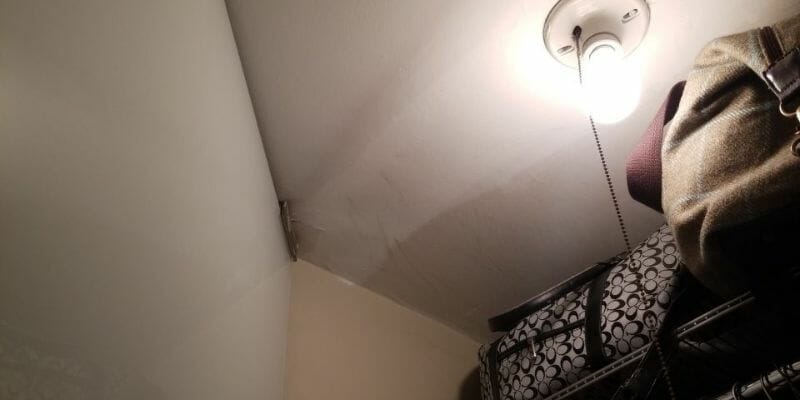When a neighbor’s house catches fire, your first concern is for their safety. But after the smoke clears, you may ask yourself:
“Did my home suffer any damage?”
Even if flames never reached your property, heat, smoke, and water can cause serious issues.
At ServiceMaster by Zaba, we bring over 85 years of combined restoration experience serving the Chicago community.
We will guide you through every step—from uncovering hidden fire damage to handling the insurance claims process.
Key Takeaways
- A fire next door can damage your home through smoke, water, heat, or flying debris, affecting your roof, windows, siding, structure, and air quality.
- Act quickly by contacting your insurer, documenting damage, speaking with your neighbor, and calling certified restoration pros like ServiceMaster by Zaba.
- Your homeowners insurance typically covers the damage, but liability depends on the fire’s cause—let your provider coordinate with the neighbor’s insurer.
How to Tell if a Neighbor’s Fire Has Damaged Your Home

According to the NFPA, fire departments in the U.S. respond to a call every 23 seconds, with total damages topping $15 billion annually—not counting harm to adjacent homes.
Even if flames didn’t reach your property, heat, smoke, and water can still leave a costly footprint.
Watch for these signs over the next few days:
1. Roof Damage
Flying embers or falling debris can scorch shingles and damage vents or flashing.
Look for warped materials or soot buildup.
2. Flooding in the Basement or Foundation
Firefighters often use thousands of gallons of water to extinguish a blaze.
This water can seep into surrounding properties, especially through ground-level entries and basements.
3. Melted or Warped Siding
Check for blistered paint, blackened wood, melted vinyl, or cracked stucco—especially along walls closest to the fire.
4. Damaged Windows
High heat can cause glass to discolor or crack.
Inspect frames for melted components or loose seals.
5. Plumbing System Issues
Intense heat can compromise outdoor plumbing, including sprinkler heads, hose bibs, and visible piping.
6. Structural Weakness

Heat radiating from the fire may affect your home’s integrity.
In steel or iron-reinforced areas like attics and basements, look for buckling or discoloration.
7. Lingering Smoke Smell
If you notice persistent odors or see soot on walls or ceilings, your home may have suffered airborne smoke contamination.
Immediate Steps to Take After a Neighbor’s Fire

1. Contact Your Insurance Company
File a claim immediately. Provide:
- Fire date and location
- Description of visible damage
- Neighbor’s contact info (if available)
2. Talk to Your Neighbor
Keep things amicable.
Exchange insurer info and document your conversation.
3. Document Everything
Take clear photos, save receipts, and maintain a log of all related interactions and expenses.
4. Hire a Certified Fire Restoration Company
After a fire—whether it starts in your home or a neighbor’s—damage can spread quickly, which is why it’s important to call restoration experts right away.
A fire damage restoration company plays a critical role after a fire, not just in cleanup, but in stabilizing the home, preventing long-term issues, and rebuilding damaged areas.
At ServiceMaster by Zaba, we provide this support throughout the Chicago area to help homeowners recover safely and thoroughly.
Here’s what that includes:
- Smoke and soot removal – Eliminates harmful residue and staining from walls, ceilings, and belongings.
- Deodorization – Neutralizes persistent smoke odors that seep into furniture, vents, and fabrics.
- Water extraction – Removes water left behind by firefighters to prevent mold and structural damage.
- Structural drying – Ensures that all hidden moisture is removed from floors, walls, and support beams.
- Reconstruction – Repairs or rebuilds fire-damaged areas of your home, from roofing to drywall to flooring.
Our team also helps with the logistics. We work directly with your insurance company—handling documentation, adjuster communication, and claim support so you don’t have to.
5. Let Insurers Handle Liability
Your provider will coordinate with your neighbor’s insurer.
You’ll be updated as the claim progresses.
Who Pays for Fire Damage from a Neighbor’s House?
Liability depends on the cause:
- Accidental fires (like electrical malfunctions): Your homeowners insurance typically covers your losses.
- Negligence (e.g., leaving a grill unattended): Your insurer may seek reimbursement from your neighbor’s insurance through a process called subrogation.
Review your policy for:
- Smoke and water damage coverage
- Loss of use (if you must temporarily relocate)
- Personal property protection
- Deductibles for third-party incidents
Tip: Never admit fault. Let your insurance provider handle communications with the other party.
Dealing with Fire Damage in Chicago? We Can Help!
If your home was damaged by a nearby fire in the Chicago area or the suburbs, you don’t have to navigate cleanup or insurance claims alone.
Call ServiceMaster by Zaba 24/7 at 773-647-1985 for emergency fire damage restoration.
We’ll help restore your home—and your peace of mind.
FAQs
Will my insurance rates go up?
Not likely, unless your actions contributed to the fire.
Can I sue my neighbor?
Only if negligence can be proven. Most cases are resolved through insurers.
What if I rent?
Your renter’s policy may cover personal belongings; structural repairs are the landlord’s responsibility.
How long do I have to file a claim?
Varies by provider, but report damage within 48-72 hours for best results.